Vijaya Ekadashi, a sacred day of profound spiritual significance, honors the victory of virtue over vice and celebrates the divine blessings of Bhagwan Vishnu. This Ekadashi, falling on the 11th day of the waxing moon in the month of Magha, is believed to offer immense spiritual benefits to those who observe it with sincerity and devotion. Known as the day of victory, Vijaya Ekadashi symbolizes the triumph of righteousness and devotion, inspiring devotees to overcome the darkness of ignorance and the obstacles in their spiritual journey.
In 2026, Vijaya Ekadashi will be observed on Friday, February 13, 2026 . This auspicious day is a time for fasting, prayers, and deep reflection. Devotees seek the grace of Bhagwan Vishnu through acts of devotion, chanting his sacred names, and performing rituals that purify the heart and mind. It is believed that observing Vijaya Ekadashi with reverence leads to liberation from sins, bestows divine protection, and blesses devotees with peace, prosperity, and the path to ultimate spiritual victory. The day serves as a reminder of the transformative power of faith, devotion, and the eternal guidance of the Divine.
Significance & Importance of Vijaya Ekadashi
Vijaya Ekadashi holds immense spiritual and philosophical significance in Hinduism, offering devotees a unique opportunity to seek divine blessings from Bhagwan Vishnu. It is considered one of the most important Ekadashis of the year, as it symbolizes the victory of righteousness (dharma) over unrighteousness (adharma) and the ultimate triumph of good over evil. Falling on the 11th day of the waxing moon during the month of Magha, this sacred day is not just a time for fasting and devotion but also for introspection, spiritual cleansing, and inner transformation.
The significance of Vijaya Ekadashi lies in its connection to the eternal battle between virtue and vice, and the reminder that true victory is attained through surrender to the Divine will. According to ancient scriptures, this day is especially powerful for removing the accumulated sins and negative energies in one’s life. Observing the fast and performing sincere prayers on this day is said to purify the soul and grant protection from all forms of spiritual and material hardships. It is believed that Bhagwan Vishnu, who governs this Ekadashi, bestows his divine grace and removes obstacles that impede one's spiritual and worldly progress.
The name 'Vijaya' means 'victory,' and this day is thought to bring the ultimate victory in life—not just in battles of the physical realm but in the inner struggles of the soul. The fast is a powerful tool for transforming negative tendencies, such as anger, greed, and ignorance, into virtues like patience, compassion, and wisdom. The day also teaches the importance of discipline, devotion, and faith in the Divine as means to overcome life's trials and tribulations.
In a more profound spiritual sense, Vijaya Ekadashi is believed to provide a gateway to spiritual liberation. Those who observe the fast with true devotion are thought to be granted moksha (salvation), transcending the cycle of birth and death and attaining union with the Divine. The fast, which often involves abstaining from food and water, is seen as a form of self-purification, allowing the devotee to cleanse both the body and mind. This process of self-discipline and devotion is considered a path to the highest form of spiritual enlightenment, where one experiences a deep connection to Bhagwan Vishnu and the ultimate reality.
The observance of Vijaya Ekadashi also highlights the importance of surrendering to the Divine. By fasting, praying, and meditating, devotees acknowledge their dependence on divine grace for success in their lives. The act of devotion during this Ekadashi reminds them that true success is not achieved through worldly efforts alone but through the grace and blessings of Bhagwan Vishnu, who is the ultimate source of victory and protection. Through this surrender, the devotee experiences a sense of peace, inner strength, and clarity, which empowers them to face challenges with faith and determination.
Vijaya Ekadashi is a spiritual journey that leads to personal growth, inner peace, and divine fulfillment. The deeper significance of this sacred day teaches devotees the power of faith, the importance of righteous living, and the transformative power of devotion to the Divine. By observing the fast with pure heart and sincere intention, one not only seeks blessings for material prosperity but also for spiritual elevation, marking a true victory over the limitations of the self and the ultimate triumph of the soul.
Stories of Vijaya Ekadashi Festival
The Vijaya Ekadashi story is deeply rooted in the spiritual teachings of the Bhagavad Gita and the epic tales from Hindu mythology. This sacred day, which falls on the 11th day (Ekadashi) of the waxing moon during the month of Magha, is associated with the power of fasting, devotion, and the ultimate victory of righteousness (dharma) over unrighteousness (adharma). It is believed that observing this Ekadashi brings spiritual victory, protection from harm, and liberation from sins.
The Story of Bhagwan Vishnu and King Mahijit
The story of Vijaya Ekadashi is most commonly linked with the legend of King Mahijit . King Mahijit was a righteous and powerful ruler who once faced a grave threat from a neighboring king, King Kalanemi , who was a tyrant. King Kalanemi was notorious for his cruel behavior and his desire to expand his kingdom by any means necessary, including using dark forces. In a desperate bid to gain control, King Kalanemi began committing sinful acts and performing unrighteous rituals.
When King Mahijit’s kingdom was attacked, he turned to Bhagwan Vishnu, seeking guidance and protection. The story recounts that King Mahijit, in his state of turmoil, approached the great sage Narada Muni , asking how he could overcome the evil influence of King Kalanemi and bring peace to his land. Narada Muni, who was deeply knowledgeable about the ways of the Divine, advised King Mahijit to observe a fast on Vijaya Ekadashi .
Narada Muni explained that by fasting on this Ekadashi, the king would gain divine strength and protection from Vishnu, allowing him to defeat the forces of evil. This Ekadashi, known for granting victory to the virtuous, would provide him with both spiritual and material success. It was during this time that the king was also instructed to worship Bhagwan Vishnu with full devotion, chanting his holy names and performing ritualistic offerings.
The Observance of the Fast
King Mahijit, following Narada Muni’s advice, observed the fast on Vijaya Ekadashi with great devotion and sincerity. He abstained from food and water, offering his prayers and chants to Bhagwan Vishnu throughout the day. As he meditated on Bhagwan Vishnu’s divine form, his mind became clear, and his heart was filled with peace. His devotion grew stronger experiencing a deep connection with the Divine.
The power of his sincere devotion reached Bhagwan Vishnu, who appeared in a vision before King Mahijit. Bhagwan Vishnu assured the king that his prayers would be answered and that victory would be his. The king, with renewed confidence, marched into battle with his army against King Kalanemi.
The Victory and Divine Blessings
With the blessings of Bhagwan Vishnu, King Mahijit fought the battle with great valor and wisdom. The forces of King Kalanemi, despite their strength, were ultimately defeated. The victory was not just a physical one, but also a spiritual triumph of good over evil. King Kalanemi, whose life had been built on deceit and wickedness, was defeated by the righteous forces under the protection of Bhagwan Vishnu.
As a result of his devotion and fasting on Vijaya Ekadashi , King Mahijit not only secured victory over his enemy but also gained spiritual merit. His kingdom prospered, and his reign was marked by peace, justice, and righteousness. The king’s victory, symbolizing the triumph of virtue, became a celebrated tale, passed down through generations, teaching the importance of fasting, devotion, and the role of Bhagwan Vishnu in protecting the righteous.
The Spiritual Lesson
The story of Vijaya Ekadashi carries profound spiritual lessons. It emphasizes that righteousness always triumphs over evil, and through devotion to Bhagwan Vishnu, one can overcome the most difficult challenges. The victory of King Mahijit is not just a victory over a physical enemy, but also a victory over internal struggles, such as fear, doubt, and the ego.
The fast on Vijaya Ekadashi is not merely a physical act of abstaining from food, but a practice that purifies the mind, body, and soul. By observing this sacred day with devotion, one can transcend the obstacles in life, whether they are external or internal, and achieve spiritual success and peace. It is a day to reflect on one's actions, cultivate virtues like humility and compassion, and seek the protection and blessings of Bhagwan Vishnu.
The stories of highlights the power of faith, devotion, and fasting as means of overcoming adversity. It teaches that true victory comes from surrendering to the Divine will, living a life of virtue, and cultivating inner strength. By observing this sacred day, devotees are reminded that they too can attain victory over life's challenges and ultimately attain spiritual liberation through the grace of Bhagwan Vishnu. The festival serves as an enduring reminder that with the Divine's blessings, victory is assured.
Festival Date, Time, Muhurat & Tithi
Vijaya Ekadashi will be observed on Friday, February 13, 2026 .
Key Timings for Vijaya Ekadashi 2026:
Vijaya Ekadashi on Friday, February 13, 2026
On 14 th Feb, Parana Time - 07:07 AM to 09:26 AM
On Parana Day Dwadashi End Moment - 04:01 PM
Ekadashi Tithi Begins - 12:22 PM on Feb 12, 2026
Ekadashi Tithi Ends - 02:25 PM on Feb 13, 2026
Devotees observe this day with fasting, prayers, and devotion to Bhagwan Vishnu, seeking divine blessings for spiritual victory, prosperity, and protection.
Note: Devotees begin their Vijaya Ekadashi rituals at sunrise, making it a key time for the day's observances. Sunrise and sunset vary by region and date due to India's geographical diversity. For exact timings, refer to local astronomical data.
How to celebrate Vijaya Ekadashi
On Vijaya Ekadashi, devotees observe a day of fasting, prayer, and devotion to Bhagwan Vishnu, seeking his blessings for victory in all aspects of life, both spiritual and material. The day is meant for introspection, purification, and spiritual growth.
Here’s what you can do to observe Vijaya Ekadashi:
Fasting and Abstinence:
The primary observance on Vijaya Ekadashi is fasting. Devotees typically observe a nirjala vrata , meaning they refrain from food and water throughout the day, though some may follow a simpler fast by consuming fruits, milk, or specific light foods. The fast is intended to purify the body and mind, allowing the devotee to focus on spiritual practices and seek the grace of Bhagwan Vishnu.
Early Morning Rituals and Holy Bath:
The day begins early with a holy bath (Snan) during an auspicious period, typically before sunrise or during the Brahma Muhurta . Taking a bath is believed to purify the body and soul. The most auspicious time for the holy bath on Vijaya Ekadashi is between 12:22 PM to 2:25 PM (IST), according to the specific Muhurat for 2026. Bathing in sacred rivers, if possible, is especially beneficial, though it can also be done at home with clean water.
Chanting Mantras and Prayers:
Devotees recite mantras dedicated to Bhagwan Vishnu to invoke his blessings. The most common mantra is the Vishnu Sahasranama (the thousand names of Vishnu), or the Hare Krishna Maha Mantra . Chanting these mantras with full devotion purifies the mind and brings divine peace. You can also perform a Vishnu Puja at home, offering flowers, fruits, incense, and a lamp (diya) to Bhagwan Vishnu.
Reading Scriptures:
On Vijaya Ekadashi, reading or listening to sacred texts like the Bhagavad Gita , Ramayana , or stories related to Bhagwan Vishnu and his incarnations is highly auspicious. These readings help reinforce the importance of dharma (righteousness) and devotion to the Divine.
Performing Acts of Charity:
Charity and helping others are central to the observance of Vijaya Ekadashi. You can perform acts of dana (donation) by giving food, clothes, or money to the needy. Donating to temples or spiritual causes also brings blessings. Charity performed on Ekadashi is believed to multiply the spiritual benefits manifold.
Reflection and Meditation:
The day is an opportunity for self-reflection and meditation. You can spend time in quiet contemplation, reflecting on your actions, thoughts, and behavior, striving to purify them. Meditating on the qualities of Bhagwan Vishnu, such as his compassion, strength, and wisdom, helps bring peace and clarity to the mind.
Breaking the Fast (Parana):
On the morning of the 12th day (Dwadashi), after the completion of the Ekadashi fast, devotees perform the Parana, or breaking of the fast. The ideal time for Parana on Vijaya Ekadashi is between 6:45 AM and 9:10 AM (IST). This is a time for offering gratitude to Bhagwan Vishnu and seeking his blessings for continued spiritual and material well-being.
Special Offerings to Bhagwan Vishnu:
Offer Tulsi leaves (holy basil) to Bhagwan Vishnu, as they are sacred to him. You may also offer fruits, sweets, and other prasads (sacred offerings) during the Puja. Lighting a lamp or oil diya in front of Vishnu’s idol or picture during the evening is another auspicious ritual.
By observing these practices with sincere devotion, you can purify your body, mind, and soul, seeking victory over life's challenges and the blessings of peace, prosperity, and spiritual liberation from Bhagwan Vishnu on this auspicious day of Vijaya Ekadashi.
Vijaya Ekadashi Festival Puja Vidhi (Puja Procedure)
The Vijaya Ekadashi festival holds great spiritual significance for devotees of Bhagwan Vishnu, and the Puja Vidhi (Puja Procedure) involves detailed rituals to purify their minds, and seek blessings for victory, prosperity, and spiritual growth. The following is the step-by-step procedure for observing the Puja during Vijaya Ekadashi, broken into twelve key points:
- Preparation of Sacred Space: The day of Vijaya Ekadashi begins with cleaning the house and the specific area where the Puja will be performed. The space should be free from distractions and clutter, creating an environment conducive to spiritual practices. Place a clean cloth or mat on the floor and arrange a small altar or raised platform to set up the idol or picture of Bhagwan Vishnu.
- Morning Bath and Purification: Devotees should take an early morning bath, preferably before sunrise, as this act purifies both the body and the mind. The bath is an essential part of the preparation for the Puja, helping the devotee feel refreshed and spiritually prepared for the day’s rituals.
- Lighting of the Lamp and Incense: Once the space is prepared and the devotee has bathed, light a small oil lamp (diya) in front of Bhagwan Vishnu's idol or picture. Along with the lamp, incense sticks are also lit. The lamp symbolizes the removal of darkness and ignorance, and the fragrance of incense creates a serene, holy atmosphere.
- Offer Fresh Flowers and Tulsi Leaves: Devotees offer fresh flowers such as marigolds, jasmine, or roses, along with Tulsi leaves, which are particularly sacred to Bhagwan Vishnu. These offerings represent purity, beauty, and devotion. Tulsi leaves, in particular, hold great importance as they are believed to have the power to purify the heart and mind.
- Offering Fruits and Sweets: The next step is to offer fresh fruits like bananas, apples, or grapes, as well as sweets such as laddus, kheer, or halwa. These items symbolize the sweetness of devotion and the abundance of Bhagwan Vishnu’s blessings. The act of offering food is a symbolic gesture of surrender and gratitude.
- Recitation of Mantras : The core of the Puja is the recitation of mantras dedicated to Bhagwan Vishnu. Devotees often chant the Hare Krishna Maha Mantra or recite the Vishnu Sahasranama (a list of Bhagwan Vishnu's 1,000 names). These mantras help invoke Bhagwan Vishnu’s blessings and purify the devotee’s mind. Chanting them with devotion and focus is considered very auspicious.
- Reading or Listening to Sacred Texts: Devotees may choose to read from the Bhagavad Gita, the Ramayana, or other sacred texts that describe Bhagwan Vishnu’s divine qualities and his role in guiding humanity. Listening to these teachings or reflecting upon their meanings deepens one’s understanding of the divine and strengthens their connection to Bhagwan Vishnu.
- Fasting and Self-Discipline: Fasting is a central practice during Vijaya Ekadashi. Devotees may observe a nirjala vrat (waterless fast) or choose to consume only fruits and milk throughout the day. This fast is seen as a way of practicing self-discipline, purifying the body, and dedicating oneself fully to the Divine. The fasting period allows the devotee to focus solely on spiritual activities and connect deeply with Bhagwan Vishnu.
- Midday Prayers and Offerings: The time around Madhyahna (midday) is considered especially auspicious for prayers and additional offerings. During this period, devotees may offer prayers of gratitude to Bhagwan Vishnu, seeking his blessings for prosperity, peace, and victory. At this time, additional offerings of flowers, fruits, and other sacred items are presented.
- Evening Aarti and Recitation: In the evening, devotees perform the Aarti by waving the lit oil lamp in front of Bhagwan Vishnu’s idol or picture in a circular motion. This is accompanied by the singing of devotional songs or hymns dedicated to Bhagwan Vishnu. The Aarti is a way to show deep respect and devotion, while also inviting divine energy and protection into the home.
- Breaking the Fast (Parana): The fast is traditionally broken the following morning, on Dwadashi, at an auspicious time, known as Parana, typically between 6:45 AM and 9:10 AM (IST). The fast is broken with a light meal, often consisting of fruits, milk, or simple grains. Devotees express gratitude for the strength and devotion required to complete the fast, offering thanks to Bhagwan Vishnu for his blessings and protection.
By following these steps, devotees not only observe the traditional rituals of Vijaya Ekadashi but also deepen their connection with Bhagwan Vishnu. Each offering, prayer, and act of devotion is intended to purify the mind and heart, invite divine blessings, and foster spiritual growth.
Vijaya Ekadashi Puja Mantra
The Hare Krishna Maha Mantra is one of the most powerful and sacred mantras in Hinduism, particularly in the Gaudiya Vaishnavism tradition. It is dedicated to Bhagwan Krishna, an incarnation of Bhagwan Vishnu, and is believed to have immense spiritual significance and power. The mantra is composed of three primary names of Bhagwan Vishnu: Hare , Krishna , and Rama , and is chanted to invoke the Divine, purify the heart, and elevate the soul.
The mantra is as follows:
Hare Krishna, Hare Krishna,
Krishna Krishna, Hare Hare,
Hare Rama, Hare Rama,
Rama Rama, Hare Hare.
The Hare Krishna Maha Mantra is typically recited repeatedly during devotional practices, often with the help of a japa mala (prayer beads), with each bead representing one repetition of the mantra. Devotees believe that regular chanting brings the mind closer to the Divine, helping one cultivate a deeper sense of love, devotion, and peace in their life.
Vijaya Ekadashi Vrat Vidhi (Fasting Procedure)
Observing the Vijaya Ekadashi fast begins with purifying oneself early in the morning by taking a sacred bath, ideally before sunrise, and performing a ritualistic cleansing. After the bath, devotees wear clean clothes and prepare an altar with an image or idol of Bhagwan Vishnu. They light a lamp and incense to invoke divine presence, creating a serene environment for prayer and meditation. Facing east, devotees take a sankalpa (vow), dedicating the fast to Bhagwan Vishnu and praying for spiritual growth, victory over obstacles, and the removal of sins.
Throughout the day, devotees abstain from grains, legumes, and certain foods, often observing a fruit and milk-based diet, or sometimes a strict nirjala fast (no food or water). The focus is on maintaining a calm, meditative state and dedicating the day to prayer and devotion to Bhagwan Vishnu.
During the fast, devotees engage in the chanting of sacred mantras, particularly the Hare Krishna Maha Mantra or Vishnu Sahasranama (the thousand names of Bhagwan Vishnu), which are believed to invoke divine blessings and strengthen one’s connection with the Divine. The chanting and recitation of these holy names are considered essential for purifying the mind and gaining spiritual insight.
The fast concludes in the evening after performing aarti (devotional prayer) to Bhagwan Vishnu, where a lamp is waved in front of the deity while singing hymns in praise of the Bhagwan. Devotees then distribute prasad (sanctified food) among family members, symbolizing the sharing of divine blessings.
Additionally, some devotees may perform acts of charity, such as donating food, clothes, or money to Brahmins or the less fortunate, as a way to seek peace, prosperity, and divine grace for themselves and their families.
Vijaya Ekadashi Vrat Katha (Traditional Fasting Story)
The Vijaya Ekadashi Vrat Katha is a traditional fasting story from Hindu mythology that highlights the significance of observing Ekadashi and the power of devotion and righteousness in attaining spiritual victory and divine blessings. The story is often recounted during the observance of Vijaya Ekadashi to inspire devotees and emphasize the importance of fasting, prayer, and dedication to Bhagwan Vishnu.
The Story of King Yudhishthira and Bhagwan Krishna
The story of Vijaya Ekadashi is found in the Vishnu Purana and is centered around a conversation between King Yudhishthira , the eldest of the Pandavas, and Bhagwan Krishna . It is said that once, on the occasion of an Ekadashi, King Yudhishthira was curious about the significance of fasting on this sacred day and asked Bhagwan Krishna to explain its importance.
Bhagwan Krishna, known for his wisdom and compassion, began by narrating the story of King Mandhata , a wise and just ruler from the Ikshvaku dynasty. Mandhata was a great devotee of Bhagwan Vishnu and followed the Ekadashi fasting rituals diligently. His devotion was so intense that he earned the blessings of Bhagwan Vishnu, who appeared before him.
The Blessing of Bhagwan Vishnu
King Mandhata, seeking victory over his enemies and the well-being of his kingdom, asked Bhagwan Vishnu for his divine blessings. Bhagwan Vishnu, pleased with his devotion, granted the king a boon and assured him that anyone who observes the fast of Vijaya Ekadashi with sincerity and devotion would be granted ultimate victory and protection from evil forces. The fasting would also bring spiritual liberation and protection from any calamities.
Bhagwan Vishnu also explained that the Vijaya Ekadashi fast was particularly powerful because it fell during the shukla paksha (waxing moon phase) of the month of Phalguna , which is a highly auspicious time. Observing the fast with full devotion not only purifies the mind but also brings victory over all obstacles and defeats the negative influences in one's life.
The Benefits of Observing Vijaya Ekadashi
Bhagwan Krishna told Yudhishthira that the Vijaya Ekadashi fast is unique in that it brings multiple blessings:
- Victory over enemies and obstacles : Those who observe this fast sincerely will experience triumph over their enemies, both physical and spiritual, and will have protection from any forms of adversity.
- Spiritual purification : The fast helps cleanse the soul, purging it of past sins and leading the devotee on the path of righteousness.
- Blessings of prosperity and peace : Observing the fast attracts blessings from Bhagwan Vishnu, bringing peace, prosperity, and happiness into the devotee’s life.
- Protection from suffering : The fast also shields the devotee from untimely death, calamities, and hardships, ensuring their safety and well-being.
King Yudhishthira’s Observance of the Fast
King Yudhishthira, inspired by Bhagwan Krishna's words, decided to observe the Vijaya Ekadashi fast with complete devotion. He abstained from food and water, spent the day meditating and chanting sacred prayers, and offered his worship to Bhagwan Vishnu. As a result of his sincere devotion, the king experienced divine protection, and his kingdom flourished, with all enemies being defeated, ensuring peace and prosperity for his people.
Moral of the Story
The moral of the Vijaya Ekadashi Vrat Katha is that fasting on this sacred day not only brings material benefits such as victory, peace, and prosperity but also purifies the mind and soul, helping the devotee grow spiritually. By observing the fast with dedication and reverence, one can overcome the challenges in life, attain divine grace, and be protected from the negative influences of the world.
These stories inspires devotees to observe the fast with devotion, knowing that by doing so, they align themselves with the divine will of Bhagwan Vishnu, and they are blessed with spiritual upliftment and success in all endeavors.
Anant Vishnu Puja
The purpose of performing the Anant Vishnu Puja is to attain blessing of Bhagwan Anant Vishnu and to blessed by materialistic comforts, peace of mind and happiness. This divine form of Bhagwan Vishnu is also worshipped to regain lost wealth. The Vaishnavites, revere Him as the Supreme deity, one who has no beginning and no end.
The benefits of performing the Anant Vishnu puja is as follows:
- Offers divine blessings of Bhagwan Vishnu
- Offers divine blessings of Goddess Lakshmi
- Invites riches and prosperity
- Offers success and growth in all undertakings
- Helps to recover lost wealth
- Offers overall abundance
- Offers contentment and bliss
- Offers protection from negative energies and evil spirits
- Fills life with happiness
Rudra Centre Puja Services is the oldest and most trusted Online Puja Services provider in the world. Over 20 years we have organized Yagnas, Pujas, Homas and Kathas like Ati Rudra Mahayajna, Sahasra Chandi Homa, Akhand Ramayan Paath, Shiva Maha Puran Katha, 4 Prahar Mahashivratri Mahapuja with teams of 100’s of curated priests for the benefit of mankind and our global clientele.
Conclusion
Vijaya Ekadashi is a profound celebration of victory, spiritual growth, and the path to divine grace. This sacred day honors the power of devotion, righteousness, and the unwavering connection to Bhagwan Vishnu. Through fasting, prayers, and acts of worship, devotees reconnect with the eternal values of purity, self-discipline, and spiritual clarity, seeking blessings for victory over life's obstacles and growth on the path of dharma. As the sacred mantras reverberate and the spirit of Bhagwan Vishnu fills the atmosphere, this auspicious day becomes a moment of deep reflection and devotion, reminding us that true success comes from faith, dedication, and the pursuit of higher spiritual truths.


-in-Astrology.jpg)
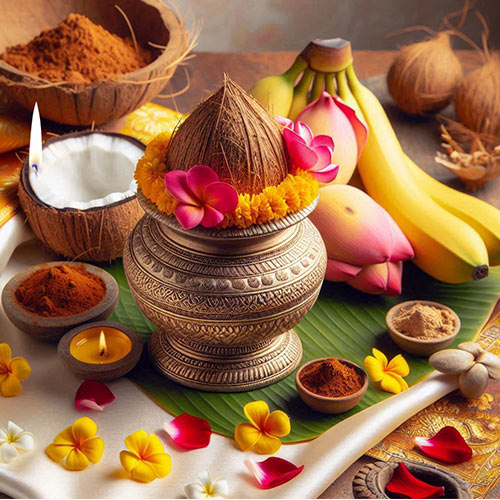
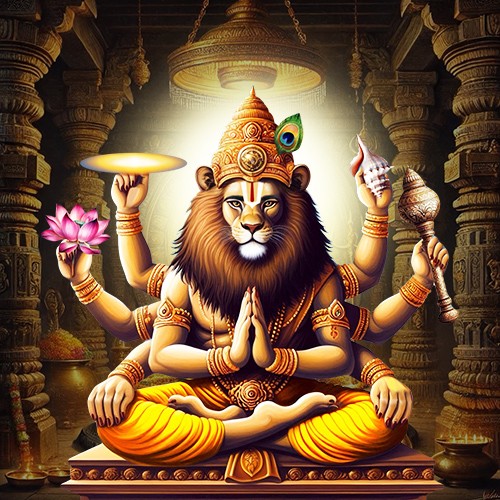
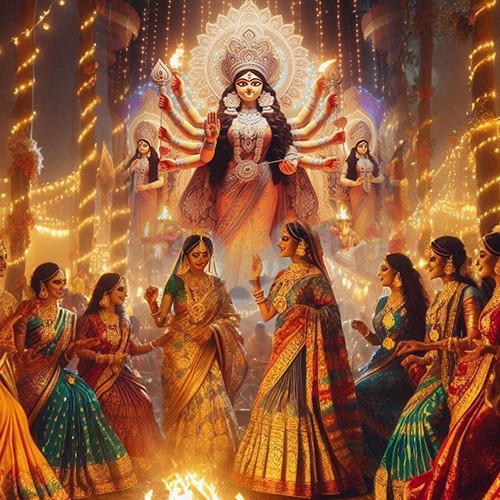
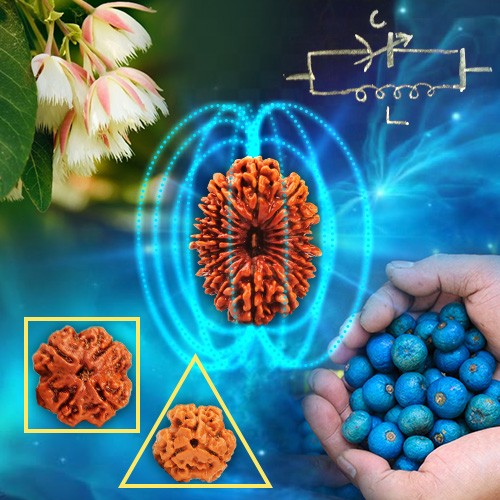

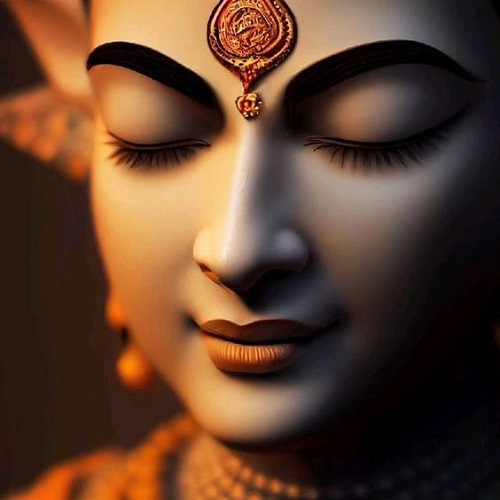
.jpg)
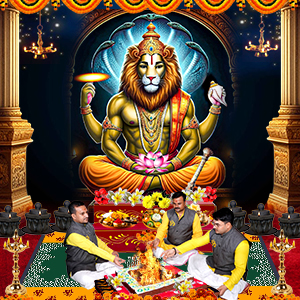
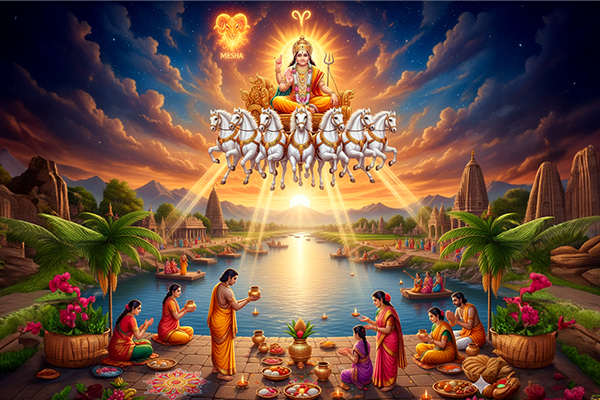
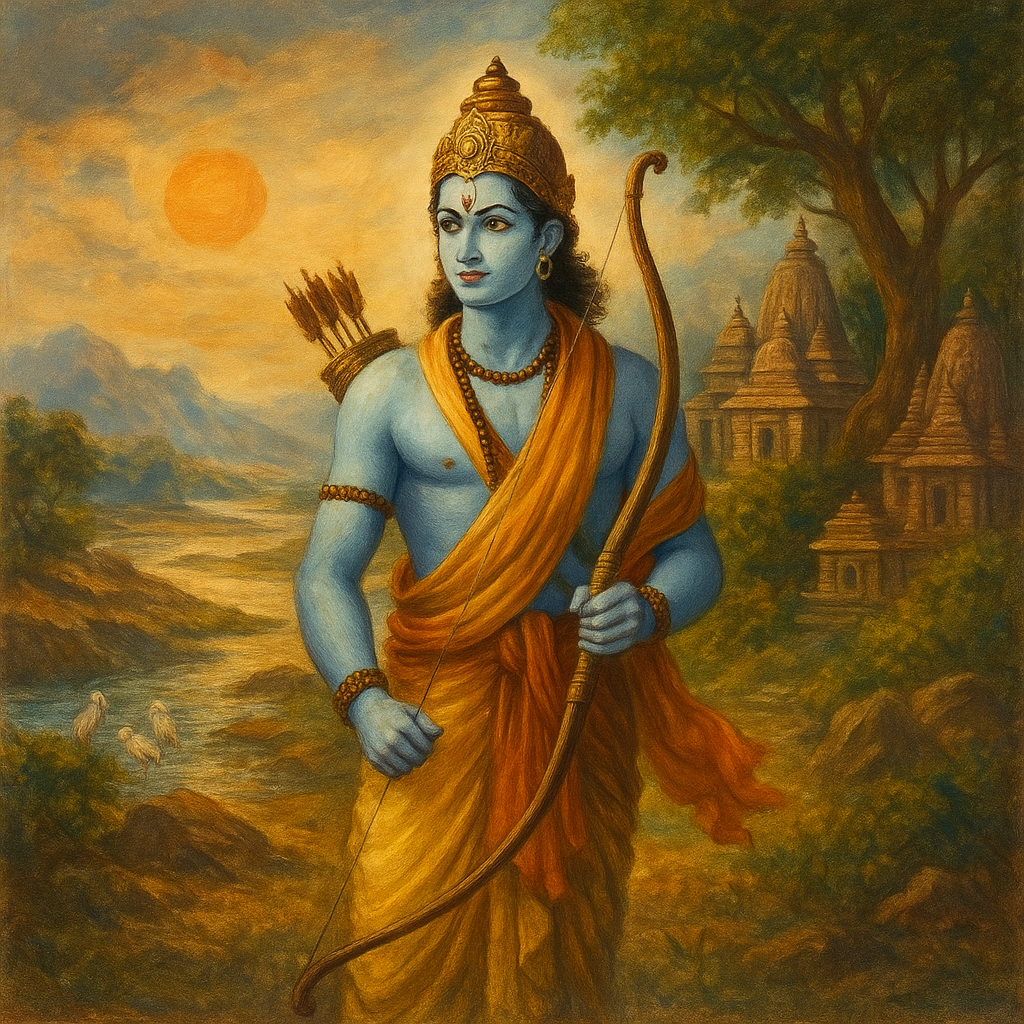
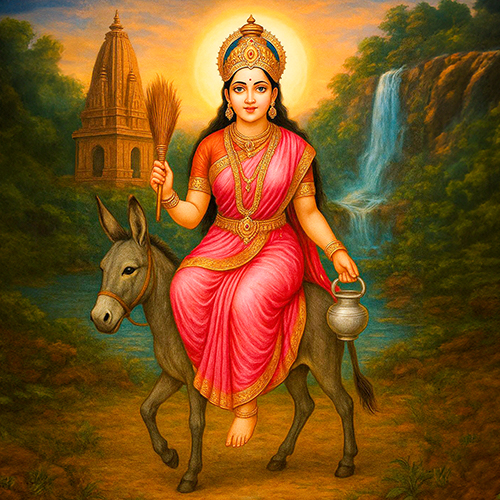
Comments 0
Leave your thought here